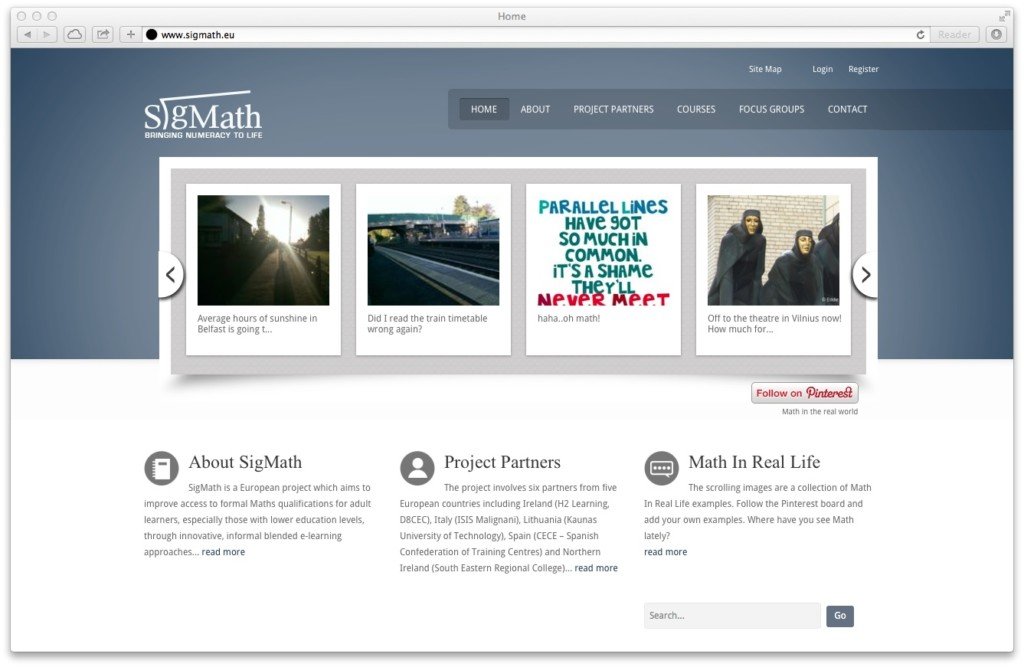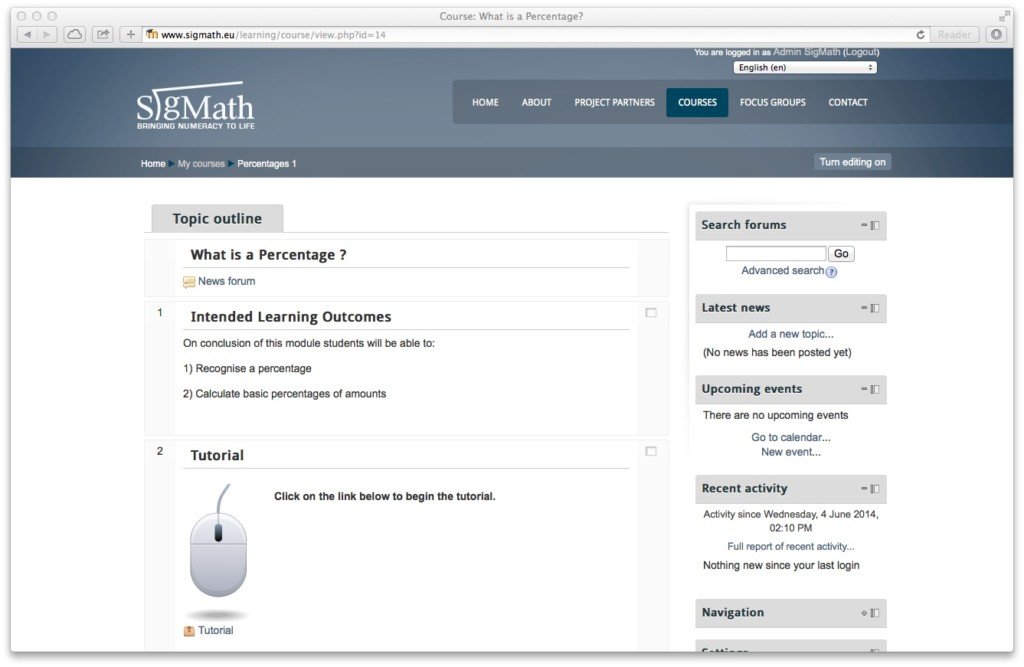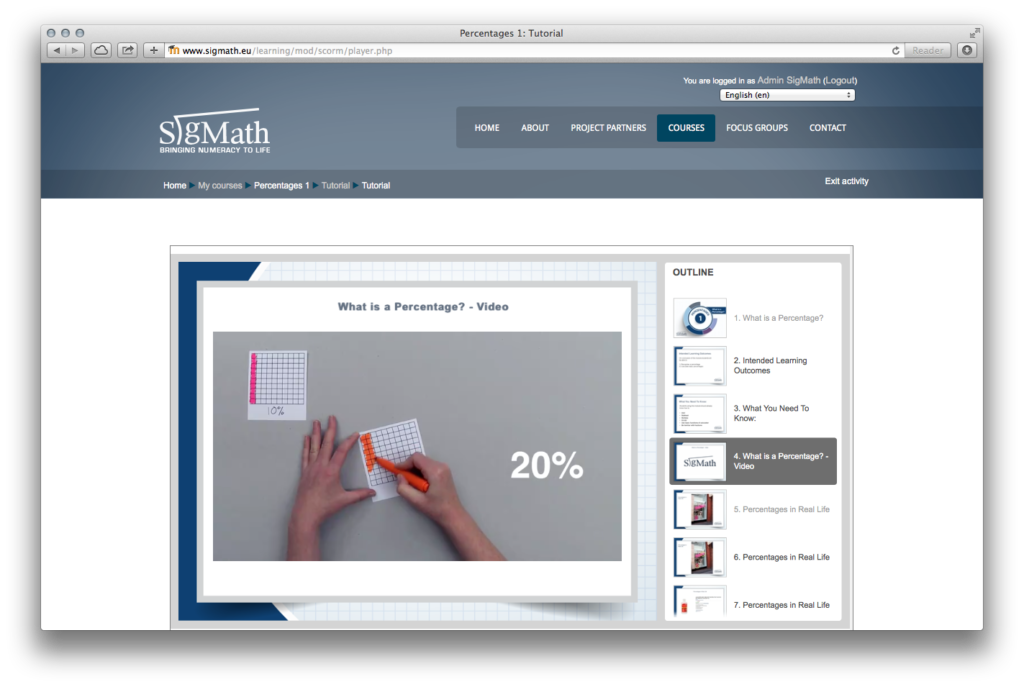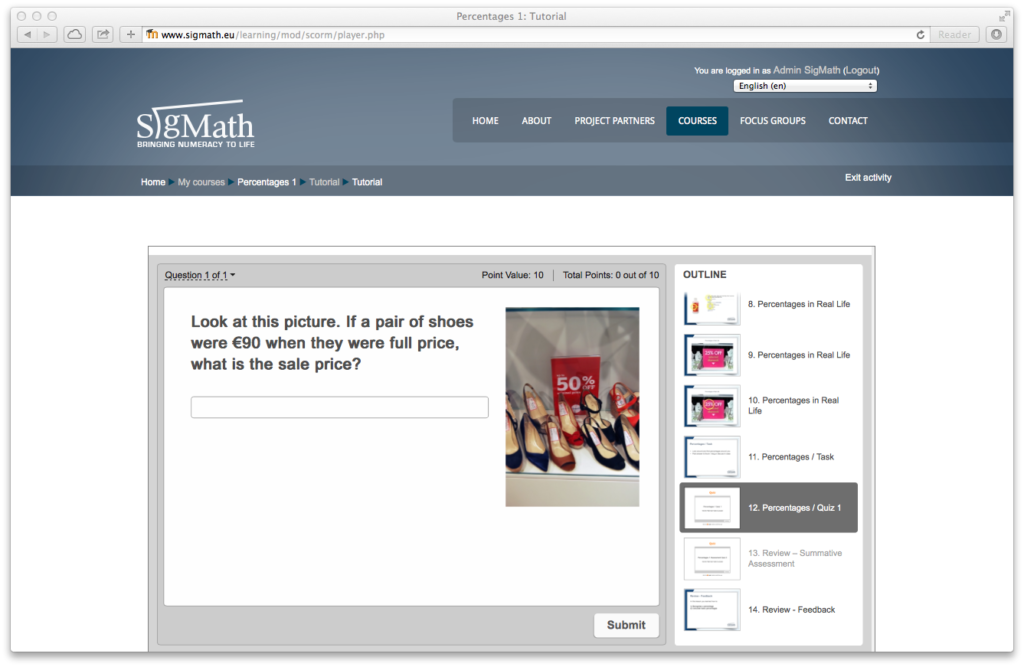sigmath.eu
-
Introduction
Brief: Help adult learners (especially those with limited formal education) access better math education through a blended e-learning platform.
Challenge: Make Moodle less intimidating, more accessible, and support multi-language interactive lessons.
Goals: Boost engagement, lower barri
-
Discovery Phase
Stakeholder interviews with project leads and educators.
Business requirements: Improve course completion rates, support multiple languages, and keep costs low.
User needs: Clear navigation, easy-to-use lessons, and confidence-building feedback.
-
Problem Framing
Problem: Adult learners found Moodle confusing and often dropped out early.
Success: Users can find, start, and complete lessons with minimal frustration.
Constraints: Must work on standard Moodle, support iSpring lessons, and be accessible in several languages.
-
User Research
User interviews: Adult learners shared pain points and what made them anxious.
Competitive analysis: Looked at other adult ed platforms—most were too academic or not localized.
Market research: Simpler, friendlier UIs increase adult learner retention.
-
Synthesis
Personas: “The Nervous Returner,” “The Busy Parent,” and “The Multi-lingual Learner.”
Journey mapping: From login to lesson completion, with plenty of drop-off after first login.
Key insights: Step-by-step guidance and instant feedback are crucial.
-
Solution Development
Info architecture: Simplified Moodle navigation, clear module structure.
Wireframes & prototypes: Focused on reducing clutter and surfacing progress indicators.
Visual design: Friendly, high-contrast, and easy to localize.
-
Testing
A/B testing: Compared old vs. new flows for lesson completion rates.
Usability testing: Gathered feedback from actual learners—flagged confusing steps.
Iterations: Tweaked lesson flow, clarified navigation, and improved feedback messages.
-
Implementation
Handoff: Delivered annotated wireframes and iSpring lesson templates to dev team.
Collab: Worked with devs to ensure multi-language support and smooth integration.
Go-to-market: Rolled out in phases, promoted through partner organizations.
-
Results & Impact
Metrics: Higher lesson completion, lower dropout, and more logins from non-English speakers.
User adoption: More learners finished modules and requested new topics.
Business impact: Helped meet EU project goals and secured future funding.
Lessons learned: Friendly UI and localized, interactive content are game changers for adult ed.
SigMath, a European project seeking to enhance formal Mathematics education for adult learners, particularly those with limited educational backgrounds, through novel and flexible blended e-learning strategies. In my role, I focused on enhancing User Experience by conducting A/B Testing research and usability evaluations for the Moodle Learning Management System portal. Additionally, I developed interactive iSpring lessons available in various languages to broaden accessibility and comprehension.





